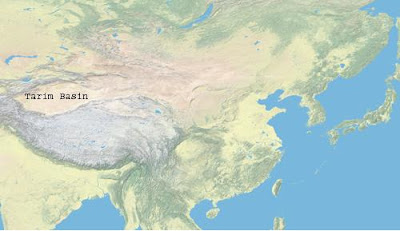Comparing Mainland China and Hong Kong
Cultural Heritage and Identity:Comparing Mainland China and Hong Kong
Presented by: Jung-a Chang, Associate Professor Department of Chinese Language and Cultural Studies University of Incheon (South Korea)
Issues in Contemporary East Asia Lecture Series
Two days ago, I attended a CEAS lecture on “Culture Heritage and Identity: Comparing Mainland China and Hong Kong” presented by Associate Professor Jung-a Chang. In the lecture, Professor Chung examined the complex and changing relationship between Hong Kong and Mainland China throughout the 20th century to today.
For those who may not know, Hong Kong was leased to Britain as a part of the terms of surrender after China lost the Second Opium War in 1898 and was returned back to China relatively recently in 1997 after the 99-year lease term had expired. Both because of its strategic location and its jurisdiction under British rule, Hong Kong developed into a democratic, prosperous, and international trading hub early on, while Mainland China came under the control of the Communist Party and began to develop on a very different pathway. As such, Hong Kong came to develop an identity that was distinct from Mainland China’s. As Professor Chang mentioned, when she met people from Hong Kong abroad, they would always say they were not from China, but from Hong Kong.
However, the forging of Hong Kong’s unique identity was not without its struggles. According to Professor Chang, for nearly half a century after Hong Kong was leased to Britian, its Han residents continued to share sentiment with Mainland China and continued to identify themselves as Chinese. However, Professor Chang points out that there were three specific traumas that served to cleave Hong Kong apart from China.
1) The Anti-British Riots of 1967 - in which pro-communist Leftists in Hong Kong, inspired by the Cultural Revolution and other events in Mainland China, took to holding mass strikes and demonstrations to protest against British rule. Some Leftists also took to terrorist techniques such as implanting bombs throughout the city and murdering some members of the press.
2) The Sino-British Joint Declaration in 1984 – known as the joint declaration of “abandoned children,” this declaration was an agreement signed by both Britain and China that outlay the plans for the return of Hong Kong to China in 1997. Although in the declaration, China had guaranteed Hong Kong nearly full autonomy for at least the next 50 years, many people in Hong Kong felt like “abandoned children,” especially after on the heels of a change in British law to refuse the people of Hong Kong British citizenship.
3) Tiananmen in 1989 – a protest in Tiananmen Square in Beijing against the communist government that was met with military force, leaving an estimated 400-800 protesters dead. The event sent shockwaves throughout the rest of the world, including Hong Kong.
As Professor Chang concludes, these three events created a sentiment of antipathy towards China in Hong Kong. No longer did they identify themselves with the Chinese, but came to see the Mainland Chinese as a part of “the other” and a threat to Hong Kong’s stability. This sentiment was further stirred by the Hong Kong media and cinema in the 1980’s, which began portraying the Mainland Chinese who came to Hong Kong as country bumpkins and potential criminals.
It was most likely due to such a sentiment that Hong Kong passed a Right of Abode law after its return to Mainland China, denying Mainland children who were staying in Hong Kong, the right to Hong Kong citizenship. Many of these children had moved from the Mainland to Hong Kong after the return, hoping to get Hong Kong citizenship, but the Hong Kong government denied them such by passing a new rule that only children born to both a Hong Kong father and mother could become a citizen.
On an ending note, this is a sentiment that, while still dominant today, is fast changing due to the rapid rise of China both politically and economically. With some predicting Shanghai to replace Hong Kong in terms of global importance in the next couple of decades, Hong Kong is finding the need again to redefine its identity – one that most likely will have to be in-sync with Mainland China’s as opposed to it.
Overall, the lecture was extremely interesting and left us questions to ask ourselves. Thank you Dr. Chang for a wonderful presentation and come see the next CEAS event:
A Sino-Southeast Asian Circuit: Ethno-histories of the Marine Goods Trade between China and Southeast Asia
Presented by: Eric Tagliacozzo, Cornell University
Monday, November 23, 4:30PM, Stiteler B26
Humanities Colloquium
- Ronnie Wang ('11)


This comment has been removed by the author.
ReplyDelete